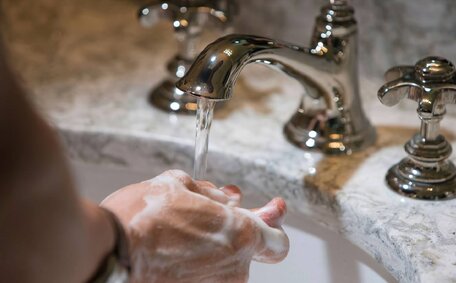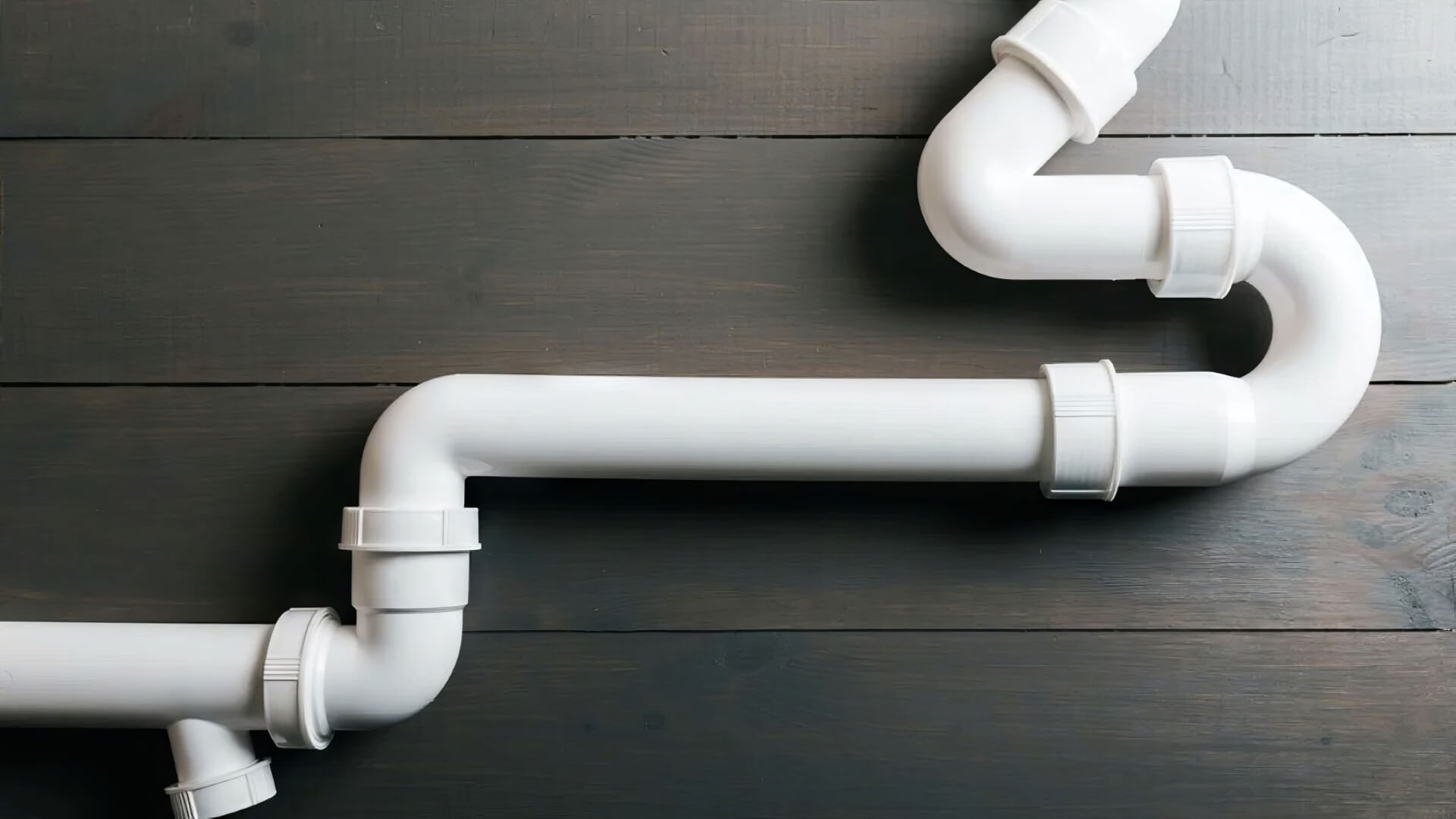Introduction to Sewer Lines and How Blockages Occur
Main sewer drains are vital for any property’s plumbing system. They transport wastewater from your home or business to the municipal drain line or directly to your septic system. Sewer lines consist of underground pipes that connect your fixtures to the municipal sewage system or your private septic tank.
Over time, various factors can lead to a blocked sewer line. These commonly include:
- Tree roots - Roots from nearby trees can grow into sewer pipes and cause blockage, especially in older clay or cast iron pipes.
- Grease, oil and fat - Cooking grease that gets washed down drains can stick to the insides of pipes.
- Toiletries - Flushing items like flushable wipes, hygiene products, dental floss, and condoms can create tangles in pipes.
- Foreign objects - Tennis balls, toys, and various items that shouldn’t be flushed can build up and become wedged in pipes.
- Pipe issues - Old, cracked, or misaligned pipes are some of the primary causes clogged by permitting debris, roots, and soil to infiltrate.
A blocked sewer line impedes the efficient drainage of wastewater from your home. Such blockages can lead to backups, flooding, plumbing damage, and potential health risks. That’s why it’s critical to understand what causes a sewer line clogged scenario to prevent it through proper maintenance.
Causes of Sewer Line Clogs
At Lalor Park Plumbing, we have extensive experience diagnosing and resolving all kinds of sewer line blockages. The upcoming sections will delve into the most frequent causes leading to sewer drain clogs that can disrupt wastewater drainage in homes and businesses.
Tree Roots
Tree root intrusion is a major cause of sewer line blockages, especially in older residences.
As trees mature near your property, their roots grow extensively underground seeking moisture. They can find their way into cracks or loose joints in sewer pipes. Once inside, the roots keep expanding, ultimately congesting the sewer drain pipe.
Older clay and cast iron main sewer lines are particularly susceptible to root infiltration. Their inflexible construction has gaps vulnerable to root penetration. Tree roots cherish the warm, moist environment inside sewer pipes and will flourish, reaching far down line once established.
Large root masses can fully block drainage, causing sewage to back up into your toilet and property. Root growth can also lead to damaged pipes and eventually to blocked sewer lines through cracking and displacement. Signs of root invasion include gurgling drains, slow drainage and sewage odours.
Routine inspections of sewer lines can identify root intrusion early, preventing severe blockages. Our experts highly recommend a physical root barrier installation around pipes to discourage root growth. Severe root intrusions necessitate professional engagements, specifically repair replacement services for drain cleaning or sewer line repair.
At Lalor Park Plumbing, we have the specialised tools to clear root-clogged drains and repair damaged sewer lines. Our experts can implement a sewer cleanout and advise on long-term solutions for sewer blockages tailored to your property’s needs.
Grease Buildup
Oil, grease, and food waste commonly lead to sewer line clogs. Cooking oils, greasy sauces, meat fats, dairy products and more can easily move through your kitchen sink and into drain lines.
Inside the pipes, cooled oil and grease solidify and accumulate along the walls. The greasy layer will then trap any passing food scraps or other debris, progressively blocking drainage.
Even small amounts of oil or grease, which can cause a sewer drain clog, should never be deposited down drain. They cling stubbornly to pipe interiors and are very difficult to remove once hardened. Grease and oils belong in the trash can, not your plumbing.
Gradual grease accumulation can lead to a complete clog in the main sewer line over time. Symptoms include gurgling noises from draining water, sinks that empty slowly and foul sewage smells.
Regular inspections can identify grease accumulation in your drain pipe before it becomes severe. Our drainage specialists have industrial strength equipment to clear out grease blockages and prevent future issues in your main drain.
With proper habits like scraping plates and disposing of oils/fats in the garbage, grease buildup can be avoided. Call Lalor Park Plumbing if your sewer drains indicate a greasy clog may be present.
Foreign Objects
Depositing unsuitable items down toilets is a leading cause of troublesome sewer clogs. Items that are not toilet paper or human waste can easily get lodged in pipes, disrupting water flow.
So-called ‘flushable’ wet wipes, feminine hygiene products, diapers, dental floss, condoms and other items often clog pipes despite misleading labelling. Sewer systems are not equipped to handle such materials.
Toys, balls, garbage and other foreign objects children may flush can also block drainage and damage pipes. Even smaller items can collect and snowball into larger obstructions over time.
Placing a drain cover or screen over toilet and tub drains, as suggested by plumbing professionals, can trap debris before it enters the sewer system. Moreover, supervising children and educating household members on proper toilet use are essential for preventing such issues.
If you suspect your clog may be caused by something flushed down a toilet, i called Lalor Park Plumbing, specialists in troubleshooting sewer drains, right away. Our techs have specialised augers to hook and extract a wide array of objects wedged in lines.swift and thorough foreign object removal helps get your drains flowing freely again.
Pipe Damage and Deterioration
Damage to sewer pipes can result from wear and tear, soil shifts, tree root penetration, or faulty installation. Older pipes made from materials like clay, cast iron or concrete are particularly vulnerable to cracking, shifting and tree root penetration.
Cracks and gaps enable sand, silt and tree roots to enter the sewer main pipes. As debris builds up, it restricts wastewater flow and can lead to a main sewer line clogged with material. Pipe materials like cast iron or clay also become brittle with age and are prone to breaking, collapsing or detaching at joints.
Ground shifts from droughts or floods can displace pipes from their original alignment, causing major plumbing leak or flow issues. Improper installation, such as shallow burial or poor joint sealing, can lead to situations where blockages can further exacerbate pipe damage.
Upgrading ageing sewer lines to modern PVC or polyethylene piping can prevent many issues, requiring less frequent line repair. These non-porous and seamless plastics resist root invasion and leaks. Flexible PVC pipes withstand ground movement better than rigid clay or cast iron.
If your sewer lines are older, request a detailed video inspection from Lalor Park Plumbing. We can assess damage and advise on repairing or replacing deteriorated pipes. Proactive maintenance can prevent severe collapses or backups in the future.
Heavy Rainfall
Heavy or prolonged rainfall can easily overwhelm sewer systems and cause blocked drains. Stormwater rapidly flows into sewer pipes through roof gutters, street drains and other collection points.
According to the Environmental Protection Agency, just one inch of rain falling on one acre of land generates 27,000 gallons of stormwater runoff. When multiplied by large buildings, roads and other impervious surfaces in a neighbourhood, rain can inundate sewer lines with more volume than they can handle.
Excess stormwater merges with your main wastewater pipes, overwhelming them and causing backups. Sewage can then back up into basements or out of manholes onto streets. Such sewer water overflows pose contamination risks.
Property owners should ensure their gutter downspouts, sump pumps and other stormwater connections are directed away from the sewer. Implementing larger pipes or storage basins into your drainage systems can also aid in managing high volumes from heavy rain.
If your sewage line encounters backups during wet weather, call Lalor Park Plumbing for emergency drainage service. Our team can tackle a sewer line backup, deploying pumps, vacuums and other equipment to extract floodwaters and restore normal operation.
Signs of a Blocked Sewer Line
There are definitive warning signs that your sewer line may be partially or fully blocked:
- Multiple drains in your home are backed up and draining slowly, like sinks, showers and toilets.
- You hear gurgling sounds from toilet bowls or sink/tub drains.
- Water pools around floor drains and takes longer than usual to drain.
- There are strong sewage odours in your bathroom or kitchen.
- You have sewage water pooling in your yard or basement.
- Toilets take longer to flush or back up when flushed.
If you notice any of these signs, it likely means debris, grease, roots or other material is obstructing the flow of wastewater through your sewer line. A partial clog in your main sewer line can lead to water back-up and floods if the blockage escalates.
Dont hesitate to call a professional plumber if you suspect a problem. At Lalor Park Plumbing, we recommend them and our technicians who have the latest cameras and augers to diagnose blockages and restore proper drainage before your plumbing sustains damage. Acting quickly also reduces health risks from raw sewage backups.
Multiple drains in your home are backed up and draining slowly, like sinks, showers and toilets.You hear gurgling sounds from toilet bowls or sink/tub drains.Water pools around floor drains and takes longer than usual to drain.There are strong sewage odours in your bathroom or kitchen.Clearing a Clogged Sewer Line
A persistent problem in your pipes can soon lead to system-wide blockage, causing a messy, unhealthy, and expensive plumbing crisis. While chemical drain cleaners may offer a convenient fix for minor clogs, severe blockages often require professional equipment and expertise to clear.
Here are three strategies plumbers most likely use to clear out clogged sewer lines:
Power Rodding
Power rodding, known as auguring, utilises a gas-powered rotating blade to clog main sewer line blockage. The auger is pushed through the sewer line via a stiff cable rotated by a heavy-duty motor. As it rotates, the auger disintegrates and extracts stubborn blockages, getting the job done right from tree roots to grease and collapsed pipe sections.
High torque electric motors with over 1500 RPM enable power rodders to remove blockages throughout your property’s sewer line to the city connection. In skilled hands, power rodders can resolve even the toughest clogs.
High Pressure Water Jetting
Hydrojetting uses an intense, pressurised stream of hot water to scour and dislodge line clogged blockages. A hydrojet machine forces water at up to 5000 PSI through a hose into the sewer line. This powerful water blast propels embedded clogs free, ensuring blockages are coming out and the pipe interior is washed clean.
Water jetting is an effective method to combat grease, mud, scale, and lodged items in pipes, and it is safe for all types of pipe materials when performed correctly. Professionals using specialised equipment capture and dispose of flushed debris.
Mechanical Drain Snakes
Handheld drain augers, or snakes, can be used to mechanically clear obstructions in the sewer branch lines that connect fixtures to the main sewer. A flexible steel cable tipped with a spiral auger is fed down the line manually to latch onto and extract clogs.
Preventing Future Blockages
While dealing with a clogged sewer line is never pleasant, there are several proactive steps you can take to help prevent blockages from occurring in the future:
Regular Inspections and Maintenance
Have your main drain professionally inspected once a year using a drain camera. Routine inspections can provide more information and identify any buildup, root intrusion or pipe damage before it escalates to back up your sewer. Periodic hydrojetting or auguring can clear minor obstructions in the main line before they worsen.
Fit Drain Screens
Install drain screens over all floor drains and tub/sink overflows to capture materials that could clog your drains. These filters effectively protect fixtures by trapping hair, debris, and other substances before they enter the sewer system. Clean drain screens regularly.
Direct Downspouts Away From Sewer Lines
Make sure your home’s rain gutter downspouts drain stormwater away from sewer lines. Excess stormwater can overwhelm pipes. Installing rain barrels is another option for diverting rooftop storm water runoff.
Proper Waste Disposal
Avoid pouring grease, oils, or fats down drains; dispose of them in the rubbish bin instead. Scrape food scraps and grease into the bin, not the garbage disposal. Place a wastebasket in bathrooms for disposable wipes, hygiene products and other items that shouldn’t be flushed.
Sewer Pipe Upgrades
Replace old clay or cast iron sewer pipes with modern PVC or polyethylene piping to prevent root intrusion and damage. Ensure pipes have proper slope and venting.
Preventing avoidable blockages is more cost-effective and less disruptive than addressing a full-blown clog. Consult with Lalor Park Plumbing, your local drain specialists, to evaluate your sewer system and enhance maintenance practices effectively.






